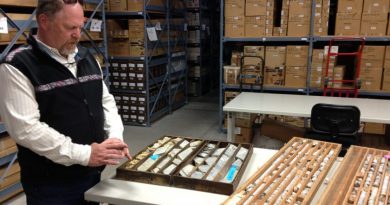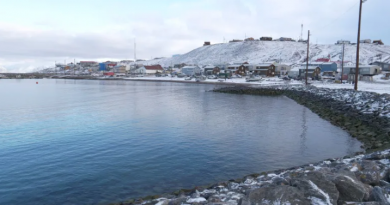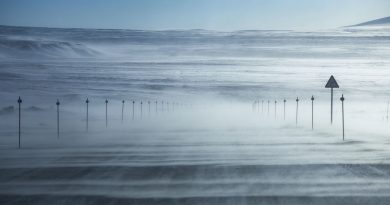Insured evacuation costs, wildfire damages total $60M for Hay River wildfires
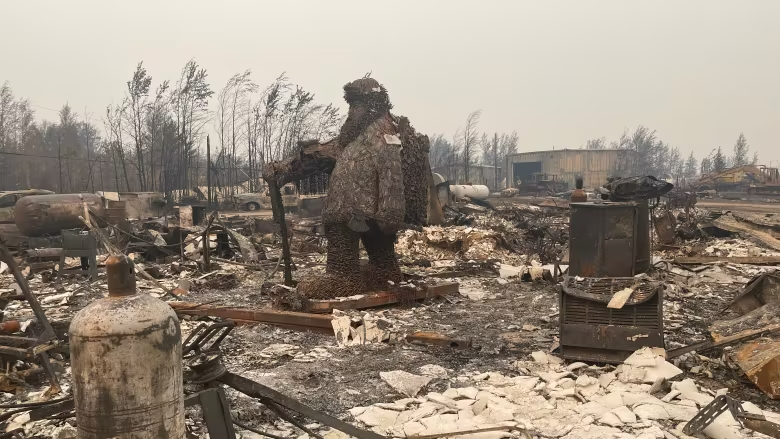
The N.W.T. government encouraged residents to use private insurance to cover evacuation costs
Wildfires that displaced thousands from the N.W.T.’s two most populous communities in August led to over $60 million worth of insured losses.
The amount of insured losses is split evenly with $30 million in the Hay River area, including Enterprise, and the other $30 million in Yellowknife and Behchokǫ̀. But the types of claims adding to that total differ between the communities.
“In the Hay River and surrounding area we do know that there was some very significant homes that were totally destroyed,” Rob de Pruis, a national director with the Insurance Bureau of Canada, told CBC News.
Additionally, dozens of vehicles were lost to the wildfires outside of Enterprise as residents fled.
The $30 million in insured damage in Hay River does not include the devastation that Kátł’odeeche First Nation experienced in May when numerous homes were destroyed by a nearby fire.
The fires also come after $175 million worth of damages that Hay River experienced from the 2022 floods.
In Yellowknife, a city of about 22,000 that didn’t lose any structures within city limits, the claims were largely around evacuation expenses, food spoilage and business interruption expenses.
That same fire did result in homes being lost in nearby Behchokǫ̀.
The amount is just an initial estimate and was calculated by Catastrophe Indices and Quantification Inc., an organization that provides the total amount of insured losses from weather related events. It calculates this with the claims filed to insurance companies, de Pruis says.
Those totals were shared in a news release issued by the Insurance Bureau of Canada, a trade association that represents insurance companies in Canada.
N.W.T. government urged evacuees to use private insurance
The amounts come after residents were told during the evacuations by the N.W.T. government to use their private insurance to cover the costs of accommodations and other necessities such as food.
But some of those residents said they feared their premiums, or rates, would rise as a result of filing these claims.
“We worry whether claiming the evacuation related expenses through home insurance providers would individually and/or globally increase the insurance premiums for Yellowknife residents,” said Yellowknife resident Chris Pereira over Facebook messenger during the evacuation in August.
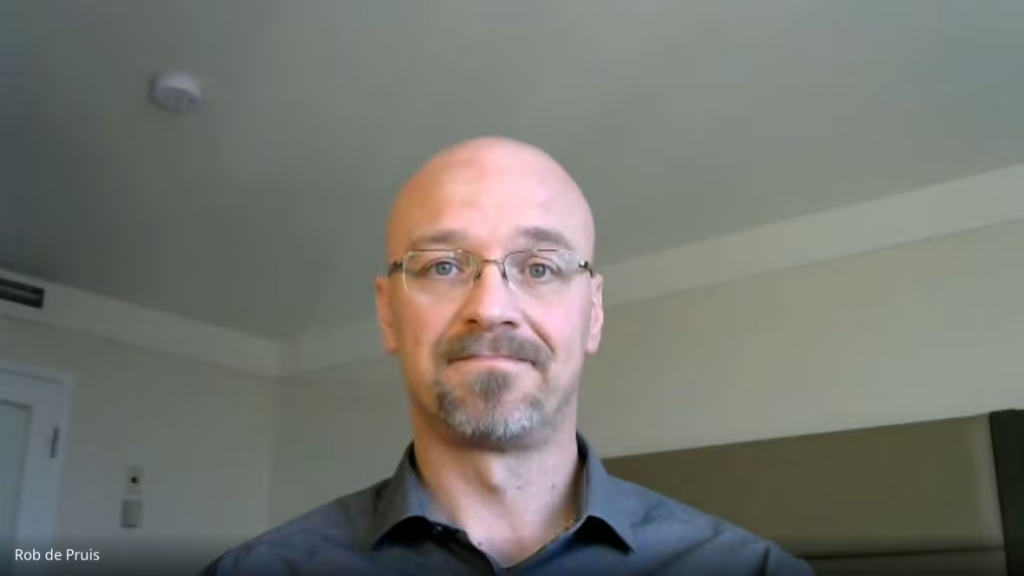
But de Pruis says just filing a claim doesn’t result in an automatic increase.
“The insurance industry is well capitalized for these events. This is what they’re here for and this is what they plan for,” he says.
He added that just living in an area that experienced a wildfire also doesn’t guarantee higher insurance rates.
But de Pruis says something that does lead to higher rates, is the rising cost of replacement materials, which are partially going up as a result of inflation.
The release from the Insurance Bureau also encouraged the federal government to begin investing $5.3 billion annually into its National Adaptation Strategy, which involves making communities and its infrastructure, more resilient to the impacts of climate change.
Related stories from around the North:
Canada: Yukon government to review this summer’s wildfire evacuations in Mayo, Old Crow, CBC News
Norway: Smoke from Canadian wildfires forecast to reach Norway, The Associated Press
Russia: New NOAA report finds vast Siberian wildfires linked to Arctic warming, The Associated Press
Sweden: High risk of wildfires in many parts of Sweden, including North, Radio Sweden
United States: Wildfires in Anchorage? Climate change sparks disaster fears, The Associated Press

